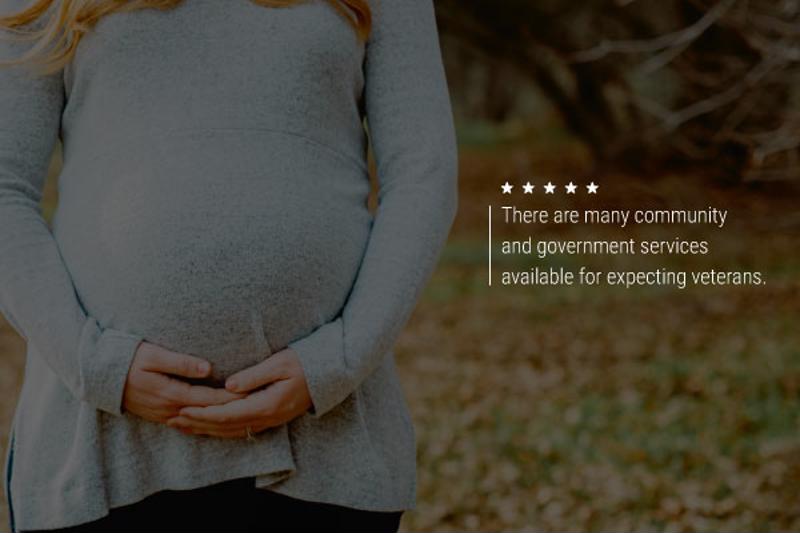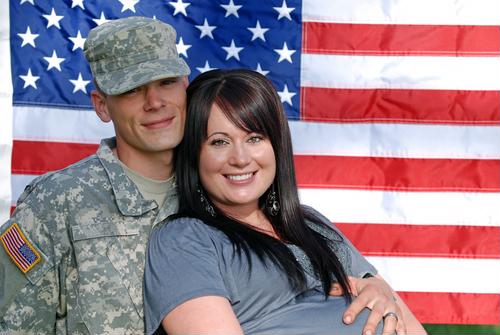Female veterans face unique struggles after their service – some of which mirror the complications they faced in the military. Thankfully, a growing number of resources from the public, government and other vets are emerging to help them.
One such resource comes in the form of a woman named Diane Ahrens of East Dundee, Illinois. A former servicemember herself and owner of Piece-A-Cake Bakery, Ahren has helped coordinate baby showers for Chicago-area expecting veterans for the past three years.
A growing event to support pregnant veterans
According to the Chicago Tribune, attendance at the baby shower events has grown steadily each year.
"The first year we only had four signed up and by the time of the shower, we had 11 or 12," Ahrens told the newspaper. "Last year, we had 25. This year, we're working toward 30."
The bakery provides desserts, while other restaurants offer entrees. In addition, the attendees receive free baby essentials, which are provided by donations and community partnerships. This year, fundraising efforts and help from a local Kohl's Cares group collected $5,000 in toys, formula, car seats, diaper bags and other items.
Ahren herself is no stranger to the struggles of an expecting veteran; she got pregnant approximately 30 years ago after serving in the Marines. Afterward, Ahren was a single mother for seven years. Her participation in the baby shower events stemmed from her desire to help women experience the same things she did, no matter how small that help may be.

The unique struggles of female veterans
Debates have gone back and forth about women's roles in the military, but it's clear the armed forces are growing more gender inclusive. That said, certain procedures and persistent beliefs still present obstacles.
As one article on Task and Purpose detailed, most military equipment is made for a man's physique, not a woman's. Ill-fitting armor and weaponry puts servicemembers in danger, as one Navy supply officer discovered when her unit was attacked in Afghanistan. The incident left her back and neck permanently damaged – all because she wore the wrong armor. Furthermore, the lack of proper care and resources worsens the already high-stress environment of the military.
These struggles don't end after women return to civilian life. Female veterans are the fastest growing homeless population in the U.S. In addition, the U.S. Department of Veteran Affairs found women vets were 2.5 times more likely to commit suicide than their civilian counterparts.
With this in mind, current female veterans should never be afraid to seek support. Feeling that they need to adhere to a standard set for others will do them more harm than good.
Thankfully, the VA provides many services to meet women's specific needs, including maternity care and family planning. Women who are pregnant or are trying to get pregnant are encouraged to talk to their healthcare provider for prenatal and preconception, maternity and newborn care services. Veterans who are struggling to get pregnant can also contact the VA for infertility counseling, assessment and certain treatments.
The department also offers family planning services for women who want to delay motherhood for the foreseeable future. Women can choose between multiple birth control methods, including pills, shots, implants, IUDs and other devices.
Motherhood can be complicated, but the struggle for female veterans can be even greater. Thankfully, many local and national services are dedicated to giving them the support they need.


